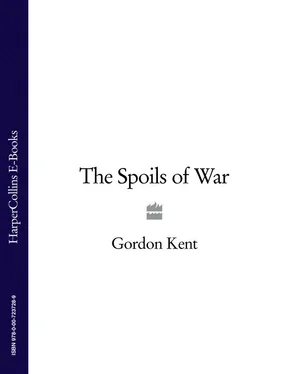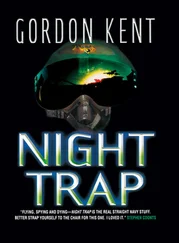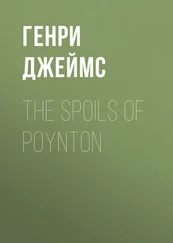Abe started to say that he never said, and so on, and she interrupted, and so on.
“Bea enjoys being a caricature,” Peretz said, smiling to show it was a joke and failing. “Bea, beautiful Bea, light of my life, could we talk about baseball?”
“Esther says the Palestinians are terrorists and invaders and we ought to throw them out and keep them the fuck out!”
“‘We,’” Abe said, smiling at them.
“Arafat is a monster. He’s paying the terrorists, killing women and children, and pretending to want peace. Esther says they live out there like animals; they live in kennels; they’re barely able to read and write and they say they have ‘universities,’ my God!”
“When our great-grandparents lived in the shtetls, the Russians called them animals; they couldn’t read or write; they—”
“And they came here and they made the desert bloom! They built real universities! They made a nation!”
“On land that they took with the gun,” Abe said wearily.
“Because it was ours!”
Abe looked at Alan and gave an apologetic shrug. The silence grew longer, and Abe said, falsely cheerful, “What d’you hear from Mike Dukas?”
Maybe because she had had too much wine, Bea broke in with, “I’ll never forgive Mike Dukas for saying that Jonathan Pollard was a traitor! Never. Never, never, never!”
“But Pollard was a traitor,” Abe made the mistake of saying.
He was probably going to explain that somebody who sells American secrets to another state, even if it’s Israel, is in fact a traitor, but Bea said in a suddenly quiet voice, “I know what you think,” and she turned away and began to talk to Rose about having daughters.
Then things were easier for a while, and they got through dessert, and Alan looked at his watch and at Rose, and when Bea brought in coffee everything would have been all right if Rose hadn’t asked for cream, and there was embarrassment and confusion, and Abe explained the kosher rule of thumb and ended, smiling as at a great joke, “It’s a dietary law, which I’d be happy to explain the logic of if I understood it myself.”
Bea said, “If you were half the Jew you ought to be, you’d understand it.”
“But I must be a Jew—my mother was Jewish. Okay, Bea?”
She dropped her voice to a purr. “Abe means he’s a modern Jew. Just like everybody else—no funny foods, no embarrassing hat, no accent— oy veh! that he should have an accent!—he should be taken for a Presbyterian, maybe. Assimilate, right, Abe? That’s the magic word, right? Assimilate European high culture and never look back—Dostoevsky, Mozart, and Wittgenstein, right?”
In the embarrassed silence, Alan said, “Who’s Wittgenstein?”
She stared at him, broke into loud laughter, then patted him on the cheek. “I love you, Al—you’re perfect.”
Alan looked at his wife and got the slightly wide-eyed look: Say nothing; we’ll leave soon.
Salem Qatib lay on a table now. A big Israeli was leaning over him shouting Shit! again and again, and then he screamed at another man, “You stupid asshole, you’ve fucking killed him!”
Acco, Israel
Rashid Halaby sat in the dark with his back against a wall that had been built when Augustus was Caesar. The fancy American flashlight that his mother had given him for his birthday had a new battery, but it was running down now. He had his cell phone, but the signal couldn’t penetrate the layers of rock and mud brick above him. He was hungry. He was filthy. He was thirsty and had no water. His ribs hurt every time he took a deep breath or moved in a certain way, from a fall.
Salem, his best friend—taken. Beaten.
Rashid had run from the dig in Gaza, fought the men who had tried to stop him. He had run and left Salem to their attackers. Then he had hidden, then hitched a ride with workers from a kiln going back to their homes in Israel. He thought he might have killed a man—a Hamas man. With a rock hammer.
He couldn’t go home.
His hand dug almost of its own volition, scrabbling in the ancient dirt. He built a little pile of worthless artifacts; the bones of a small animal, some shells, a coil of brass or bronze wire, something that might have been a bead or a carbonized grain of wheat. And a bronze arrowhead with a distinctive cast barb, the type that the Scythians had used. Salem Qatib had taught him all that.
Sitting in the dark, he cried. Once he started, he couldn’t stop, and it went on and on, because too many bad things had happened. He wanted out. He needed to find Salem.
Acco
It was after midnight when Rashid emerged from the tunnels under Acco. He left by way of new digs into the crusader city; they were unguarded and had opened new routes to the surface for him. One came up just outside the north walls, close enough to the sea that he had to wade the last few yards through water filthy with refuse in his wavering flashlight. He washed as soon as the water looked clean. Then he picked his way along the stone shoring intended to keep ancient Acco from washing into the Mediterranean until he passed the walls and entered the industrial zone to the north. There he climbed up into the over-lit modern night and squelched his way to a bus stop. By the time a bus came, he was nearly dry. Neither of the two passengers gave him a glance.
He was going to the apartment of Salem’s girlfriend. He didn’t like her, but he had nowhere else to go. She would tell him what had happened. She would know where to find Salem.
Even his feet were almost dry by the time the bus dropped him a few meters from her apartment, a heavy building with too much concrete and too little glass. From the street, he could see a paid security guard in the lobby. He had been here before, many times. Salem had virtually lived in her apartment after he met her.
He walked around the building, hungry, thirsty, and every time he slipped his side gave a pulse of pain like a knife-jab. Yesterday, or perhaps two days ago, he had had everything a man his age could want—a job, a place to live, a wonderful friend—
Before he could start crying again, Rashid pushed himself up the steps and into the lobby. The guard did not raise his head from his Koran, and Rashid went by. The building had elevators that actually worked. Rashid hit the up button and waited. When the doors opened, he entered, panicked briefly when he saw a man coming up from the garage with him, and then made himself press the button for sixteen. The man smiled at him and then frowned at his shoes, good American basketball shoes now caked with filth and still damp.
“I got lost,” Rashid said.
The words hung in the air between them. Rashid knew immediately that talking had been a mistake. The other man looked away. The elevator came to a stop on twelve and the man got out, looking at Rashid as he left and then at the digital floor display as if to check where Rashid was going.
Rashid felt his hands begin to shake. He clenched them.
The doors shut.
Rashid was sure that the man intended to call the desk when he reached his apartment. If Saida refused to see him, he would be taken, perhaps handed over to the police.
The doors opened on an empty corridor. Rashid stumbled forward, rattled and apprehensive. Saida was a hard woman, but she wasn’t bad.
A slut, his mother said.
He got to her door, still confused about what to say when she answered, and knocked. He should have called before he came, but he had little money, and in movies, people could be traced by their cell phones. He knocked again, put his ear to the door and knocked as loud as he dared.
The elevator departed behind him with a loud hum and whir of hydraulics and pulleys. He listened to it as it ran all the way down to the lobby without stopping.
Читать дальше












